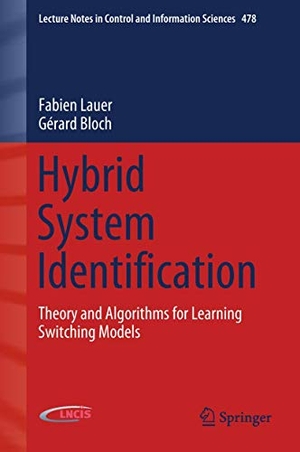Für statistische Zwecke und um bestmögliche Funktionalität zu bieten, speichert diese Website Cookies auf Ihrem Gerät. Das Speichern von Cookies kann in den Browser-Einstellungen deaktiviert werden. Wenn Sie die Website weiter nutzen, stimmen Sie der Verwendung von Cookies zu.
Cookie akzeptieren
Gérard Bloch / Fabien Lauer
Hybrid System Identification
- Springer International Publishing
- 2018
- Gebunden
- 276 Seiten
- ISBN 9783030001926
¿Hybrid System Identification helps readers to build mathematical models of dynamical systems switching between different operating modes, from their experimental observations. It provides an overview of the interaction between system identification, machine learning and pattern recognition fields in explaining and analysing hybrid system identification. It emphasises the optimization and computational complexity issues that lie at the core of the problems considered and sets them aside from standard system identification problems. The book presents practical methods that leverage this complexity, as well as a broad view of state-of-the-art machine learning methods. The authors illustrate the key technical points using examples and figures to help the reader understand
Mehr
Weniger
zzgl. Versand
in Kürze